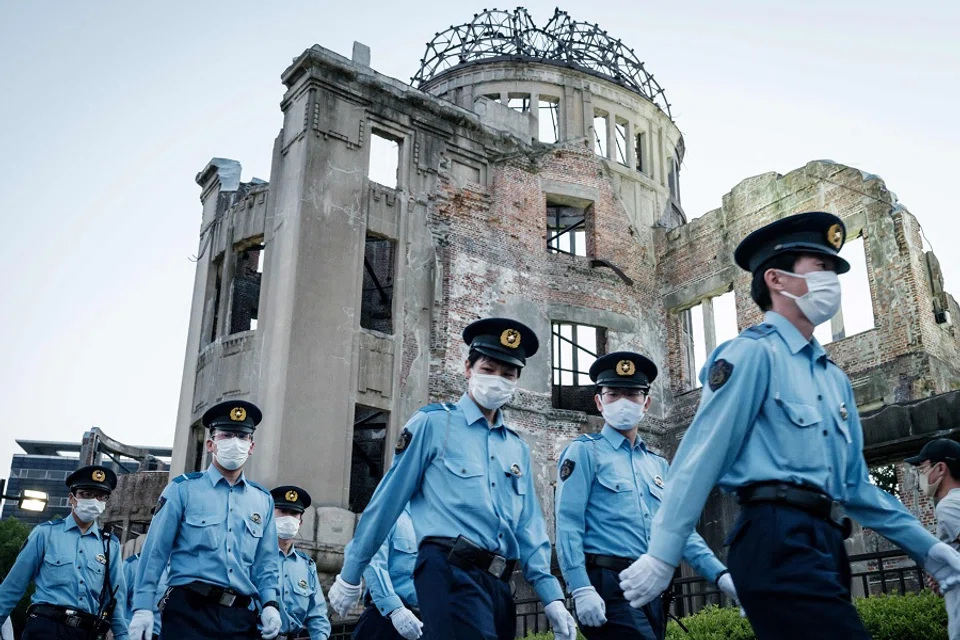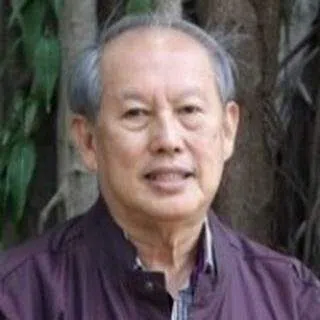The real reason why Japan is following the US's lead
Academic Toh Lam Seng traces Japan's long-held foreign policy stance of "following the US's lead". Circumstances of history led to this default pattern, even though Japan did try to break out of this straitjacket. Domestic opposition aside, under the US's watchful eye, Japan has not been able to possess nuclear weaponry or have a permanent seat in the United Nations Security Council. But with the changing situation of a rising China, might Japan move closer to getting what it has always wanted?

In any discussion of post-war Japanese foreign policy, readers with any knowledge of Japanese politics would be aware of the phrase "following the US's lead".
Indeed, from 28 April 1952, when the Treaty of San Francisco took effect and Japan became "independent" from the US, Japan's post-war foreign policy has been one of following the US's lead. This is because on that same day, the Security Treaty Between the United States and Japan, a pact that kickstarted the "master-servant" relationship between both countries, also took effect.
In addition, following Washington's instructions, Japan also signed the Treaty of Peace between the Republic of China and Japan (Treaty of Taipei) that same day with the Chiang Kai-shek government that had fled to Taiwan. These three treaties were enough to ensure that the Japanese government followed the footsteps of US foreign policy after the war.
A foreign policy that follows the US's lead
In particular, the Treaty of Taipei meant that Japan could only recognise the Republic of China that had fled to Taiwan. Thus, relations between Japan and its neighbouring People's Republic of China, which actually ruled mainland China, were abnormal and devoid of official diplomatic relations for a long time. From this perspective, saying that Japan's post-war diplomatic history was made up of following the US's lead is entirely reasonable.
Most glaringly and awkwardly, when nothing could prevent the People's Republic of China from resuming its legitimate membership in the United Nations any further in 1971, then Japanese Prime Minister Eisaku Sato (former Japanese Prime Minister Shinzo Abe's granduncle) instructed his foreign minister, Takeo Fukuda, to jointly put forth the "important question" resolution with the US in a bid to block China's representation in the UN. This resolution was rejected in the end, and Sato and Fukuda paid a huge political price for this.

China-Japan relations only improved and were normalised after newly-appointed Japanese Prime Minister Kakuei Tanaka visited China in September 1972. It is worth noting that Tanaka's bold move came after US President Richard Nixon visited China in 1972 as well. Since the owner of the White House was ready to abandon its long-term hostility towards China and resume political and economic exchanges with Beijing, there was no reason for Japan, which is in close proximity to China, to not do the same. This was the mentality and consensus that mainstream Japanese political and financial circles had at that time. But upon closer analysis, it was still related to the basic mindset and framework of following the US's lead.
It manifested itself in forums as a debate between becoming number one in the world or a willing servant of the US that ranked second in the world.
Flying the pro-Arab flag high
Nevertheless, if we therefore conclude that Japan's traditional elites have not questioned or tried to get rid of the influence of this policy of following the US's lead, we would be underestimating their intelligence and strategic thinking. For example, when the oil crisis broke out in late November 1973, Japan, as a country with virtually no natural resources, flew the pro-Arab flag up high, and sent then Deputy Prime Minister Takeo Miki as special envoy to Arab states for goodwill visits to expound on Japan's new Arab policy. The reason was simple: 99% of Japan's crude oil came from foreign imports, and 80% of it came from various Middle East countries.
Hence, because this matter concerned Japan's survival, Tokyo had to abandon its policy to follow the US's lead even if it meant being ridiculed by the international community. Japan could not help but "dig a well when it became thirsty" and humbly ask for help from Egypt, Saudi Arabia, Syria, United Arab Emirates, Kuwait, Iraq and Iran - countries that it would not have paid much attention to on normal days.
By the late 1980s, Japan's interest-driven foreign policy became more apparent. It manifested itself in forums as a debate between becoming number one in the world or a willing servant of the US that ranked second in the world. For instance, right-wing politician Shintaro Ishihara, who is known to shoot from the hip, wrote the bestselling The Japan That Can Say No during the height of Japan's bubble economy years.
Advocating the 'flying geese paradigm'
In the economic realm, there were even more Japanese experts and academics who expanded on the narrative laid out in American sociologist Ezra Vogel's Japan as Number One, and boasted that the 21st century would be Japan's century. The most famous among them is Professor Toshio Watanabe of the Tokyo Institute of Technology who later became president of Takushoku University. He put forth the "flying geese paradigm" for Asian economies together with some colleagues.

The lead goose in the V-shaped flying geese paradigm was Japan itself, followed by South Korea, Taiwan, Singapore and Hong Kong - the four Asian tigers - with ASEAN countries coming next. China was excluded from the original design of the paradigm.
However, happy days did not last. After Japan's bubble economy burst in the 1990s, the aforementioned discussions about whether Japan should be content with remaining as world number two and the flying geese paradigm were thrown out the window. What replaced these discussions were frustrating talks about Japan's lost decade or even decades.
Under such circumstances, books along the lines of Japan as Number One and The Japan That Can Say No vanished as well, and Japan went back to square one. Observably, the fact that Japan has to dance to the US's tune is also because it does not have the power to do what it wishes to and has to bear with things for now. From this perspective, there is indeed some truth to Japan abiding by the policy of following the US's lead.
Strangely, under US protection, post-war Japan only needed to pay low war reparations or quasi-reparations under the guise of economic assistance or technical assistance. It even found a market for its products and a source for cheap raw materials and labour...
US surveillance of Japan?
At the same time, it is worth noting that Japan was able to return to Asia at minimal cost and gain freedom of action after World War II because of the support and arrangements made by the US, who was in Cold War mode.
The simplest example is this: given the heinous crimes that Japan had committed during WWII, if it wished to return to Southeast Asia after the war, Japan would first have had to face up to massive war reparations and deal with the feelings of dissatisfaction and opposition among the people. For a Japan that was poor and defeated at that time, these issues would have been impossible to handle.

Strangely, under US protection, post-war Japan only needed to pay low war reparations or quasi-reparations under the guise of economic assistance or technical assistance. It even found a market for its products and a source for cheap raw materials and labour in this manner, laying the foundations for Japan's economic expansion into Southeast Asia after the war.
On the other hand, the US's guarantee and supervision also allayed concerns about a revival of Japanese militarism or a comeback of the Japanese army that Southeast Asian countries were most worried about. In other words, for a long time after the war, there was a market for the theory that the US was surveilling Japan in Southeast Asia.
Undoubtedly, the US was allowing Japan to act as its loyal partner in the Far East on the one hand while remaining wary of it and acting carefully on the other. In particular, the older generation of US leaders such as former US presidents Jimmy Carter and George W. Bush, or former US Secretary of State Henry Kissinger, were all wary of Japan.
Japan has never been able to possess nuclear weapons or become a permanent member of the UN Security Council. Undoubtedly, putting aside opposition from domestic anti-war groups, individuals at home and abroad, and neighbouring countries such as China and South Korea, this is because Washington has never allowed it.
Two cards in the US's hands
Having gained an understanding of the good and bad in Japan-US relations and looking back on the delicate relations between the two countries following the Gulf Crisis of the 1990s, we can observe the following pattern: Japan's propaganda machine repeatedly declared that Japan contributed US$9 billion (later increased to US$13 billion) to help fund military operations but was unable to deploy troops because of its constitution. This led to Japan being scorned in some quarters by the US and its European allies. But in truth, Asian, European and American countries alike only wanted Japan to play a greater role in the logistics aspects of international military operations.

Perhaps the underlying concerns of Japan playing a military role was most clearly put forth by Singapore's then Minister Mentor Lee Kuan Yew. Following then Japanese Prime Minister Toshiki Kaifu's visit to Southeast Asia after Japan dispatched minesweepers to the Persian Gulf in May 1991, he said, "Allowing Japan to once again send its forces abroad is like giving a chocolate liqueur to an alcoholic."
Similarly, in terms of the Japanese Self-Defense Forces (SDF), while the White House wants Tokyo to pay more to host US forces in Japan, there is no plan to transfer the base to the Japanese military for defence purposes.
...instead of saying that these are the result of the US's pressure on Japan, it is more accurate to say that it stems from Japan's wish to amend the constitution and deploy troops.
Washington thinks that the reason why Tokyo is still following its lead until now is mainly because Tokyo lacks two cards it can play - one, nuclear weapons; two, a permanent seat in the UN Security Council which has veto power. Thus, even if the US promises Tokyo that it would relax its surveillance on the Japanese military so that the latter can respond to changes in the state of affairs in East Asia, the extent of this latitude cannot be ascertained.
From this perspective, regardless of whether the Japanese foreign ministry or high-ranking officials appear to be at a loss amid US-China tensions or whether newly-appointed Japanese Prime Minister Fumio Kishida clearly states that Japan stands by the US-Japan alliance and conducts their foreign policy based on shared values, instead of saying that these are the result of the US's pressure on Japan, it is more accurate to say that it stems from Japan's wish to amend the constitution and deploy troops.
Related: How Japan's political stance is becoming increasingly hawkish and conservative | Chinese academic: Japan is the 'hidden warrior' behind China-US competition | US academic: Is Japan a true and loyal US ally? | Japanese academic: Biden's emphasis on allies is impacting Japan-China relations | Japanese academic: Has Japan 'crossed the Rubicon' in Japan-China relations?





![[Photos] Fact versus fiction: The portrayal of WWII anti-Japanese martyrs in Taiwan](https://cassette.sphdigital.com.sg/image/thinkchina/3494f8bd481870f7c65b881fd21a3fd733f573f23232376e39c532a2c7593cbc)